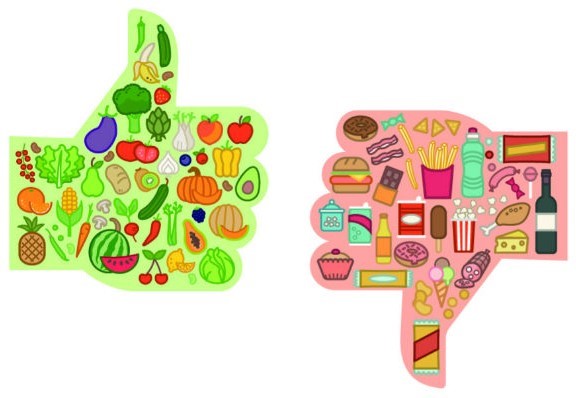Nutrition Facts and Diet Therapy in Cancer and Common Treatment Side Effects
In case there is a sore or dry mouth and changes in taste and swallowing difficulties
- After every meal, wash your mouth and use a soft toothbrush and dental floss.
- Use soft liquids such as lukewarm soup. Avoid canned foods, foods in metal and steel containers.
- Wet your mouth and gums with ice cubes. Do not use salty, spicy or acidic foods.
- During chemotherapy, it is possible to change the sense of taste and desire for food, for example, lack of desire for meat. Choose the food according to the therapist advices and according to your desire. Do not eat dry food in case of mouth inflammation.
- During and after chemotherapy, the need for certain minerals and vitamins changes (increases or decreases). Please consult your specialist before taking any type of supplement.

In case there is nausea and vomiting and loss of appetite
- Drink enough fluids (light tea and water). Eating a little crackers or toast bread would be helpful. Gum also can help.
- Avoid drinking liquids before, during and immediately after meals. Constipation and diarrhea need to be treated by consulting your specialist.
- Decorate your meals and use nutritious (non-spicy) spices. Fatty food reduces appetite. Do not drink large volumes of liquids at once, drink by sips.
- After vomiting, drink a sip of water (or a mixture of water and a little rose or rose water for flavor) and repeat it every 10 minutes for up to 1 hour. Get more food once your appetite increases.
- Be sure to increase the number of meals and reduce the amount consumed per meal. Get enough sleep.
- Use a straw to drink liquids. Eat fresh fruits. Turn on the fan while cooking.
- Avoid drinking carbonated liquids. Reduce coffee consumption. Do not lie down after eating. Balanced aerobic exercise like walking, like half an hour before lunch, increases your appetite.
- If there are problems with eating solid foods, use soft foods or purees.
- Getting a small amount of ginger tea or its own as well as garlic in food helps to reduce nausea. Lemon juice and vinegar are allowed to be taken if they are tolerated by mouth ulcers.
Important notes before chemotherapy
- The most important point before treatment is to overcome your stress. Be aware of the whole treatment process and possible side effects. You are requires to be relax and patient throughout chemotherapy treatment, and it will be finally ended and you will return to your normal life.
- The important thing is to increase the strength and immune system of the body, for this purpose, use 2 to 3 units of fruits and 3 to 4 units of vegetables (if there are no digestive problems) and enough fluids. Increase your protein intake, so that your maximum intake is from cooked fish and beans, chicken, nuts and seeds.
- It is permissible to take a multi-minerals/vitamins supplement (consult with your specialist in advance) in the amount of 2 to 3 times a week. But avoid high intake of antioxidant supplements.
- Since chemotherapy may last for several hours, having a small snack before or even during treatment can be very helpful.
In general, following food tips, dos and don'ts, dependent on the history of the disease, the drugs used and the stage of the disease, differ between cases and people should refer to a nutritionist to adjust their diet plan.
To get more information on nutrition, you can visit the Motamed Breast Clinic, ACECR Research Institute or contact the numbers below.
Counselor’s contact: 021-66404020 09124885127
References:
· Donaldson, M.S., Nutrition and cancer: a review of the evidence for an anti-cancer diet. Nutrition journal, 2004. 3: p. 19-19.
· Aghajanpour, M., et al., Functional foods and their role in cancer prevention and health promotion: a comprehensive review. American journal of cancer research, 2017. 7(4): p. 740-769.
· Rauh, S., et al., Nutrition in patients with cancer: a new area for medical oncologists? A practising oncologist's interdisciplinary position paper. ESMO open, 2018. 3(4): p. e000345-e000345.
· Mardas, M., R. Madry, and M. Stelmach-Mardas, Link between diet and chemotherapy related gastrointestinal side effects. Contemporary oncology (Poznan, Poland), 2017. 21(2): p. 162-167.
· Coa, K.I., et al., The impact of cancer treatment on the diets and food preferences of patients receiving outpatient treatment. Nutrition and cancer, 2015. 67(2): p. 339-353.
Compiled and edited by:
Dr. Ahmad Fazilat
Faculty member, Dept of Genetics, Motamed Cancer Institute, ACECR


